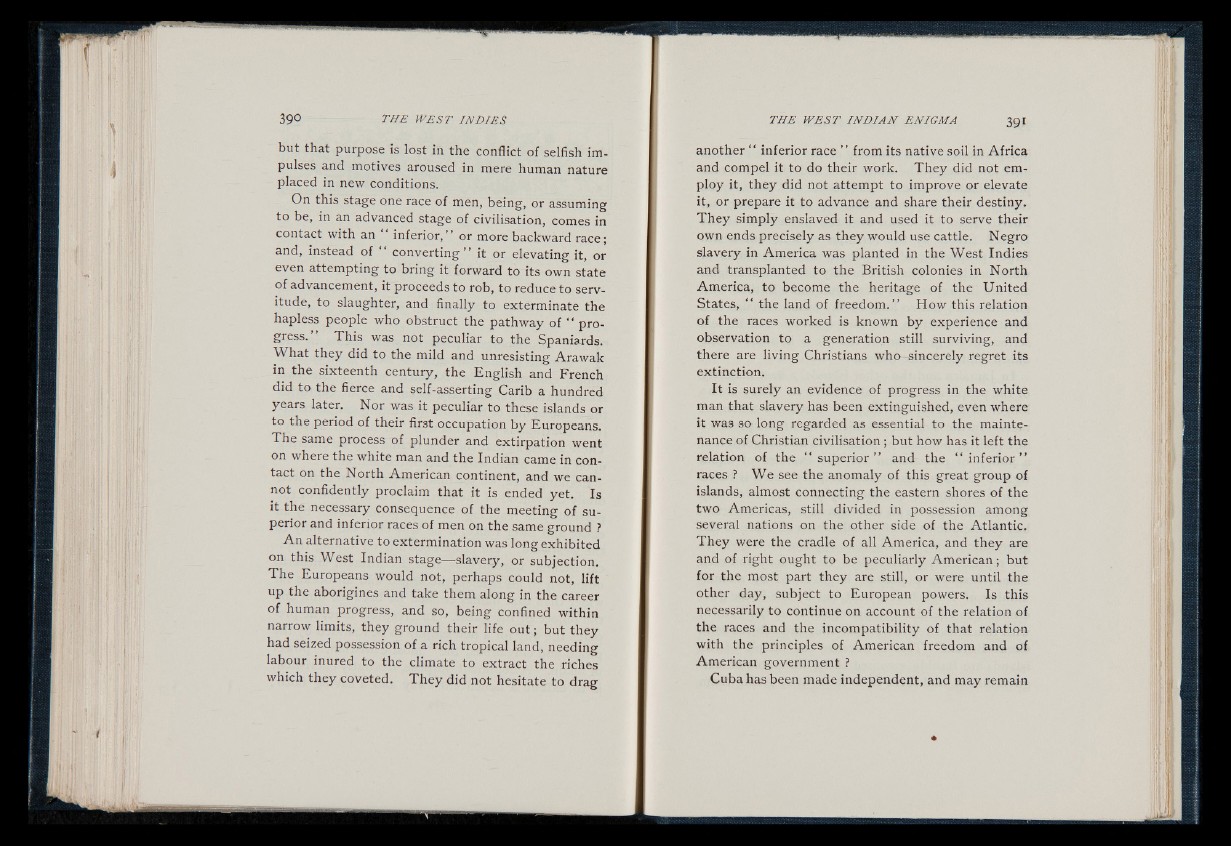
but that purpose is lost in the conflict of selfish impulses
and motives aroused in mere human nature
placed in new conditions.
On this stage one race of men, being, or assuming
to be, in an advanced stage of civilisation, comes in
contact with an inferior,” or more backward race;
and, instead of “ converting” it or elevating it, or
even attempting to bring it forward to its own state
of advancement, it proceeds to rob, to reduce to servitude,
to slaughter, and finally to exterminate the
hapless people who obstruct the pathway of “ progress.”
This was not peculiar to the Spaniards.
What they did to the mild and unresisting Arawak
in the sixteenth century, the English and French
did to the fierce and self-asserting Carib a hundred
years later. Nor was it peculiar to these islands or
to the period of their first occupation by Europeans.
The same process of plunder and extirpation went
on where the white man and the Indian came in contact
on the North American continent, and we cannot
confidently proclaim that it is ended yet. Is
it the necessary consequence of the meeting of superior
and inferior races of men on the same ground ?
A n alternative to extermination was long exhibited
on this West Indian stage— slavery, or subjection.
T he Europeans would not, perhaps could not, lift
up the aborigines and take them along in the career
of human progress, and so, being confined within
narrow limits, they ground their life o u t ; but they
had seized possession of a rich tropical land, needing
labour inured to the climate to extract the riches
which they coveted. T h e y did not hesitate to drag
another ” inferior race ” from its native soil in Africa
and compel it to do their work. T hey did not employ
it, they did not attempt to improve or elevate
it, or prepare it to advance and share their destiny.
T h e y simply enslaved it and used it to serve their
own ends precisely as they would use cattle. Negro
slavery in America was planted in the West Indies
and transplanted to the British colonies in North
America, to become the heritage of the United
States, “ the land of freedom.” How this relation
of the races worked is known by experience and
observation to a generation still surviving, and
there are living Christians who sincerely regret its
extinction.
It is surely an evidence of progress in the white
man that slavery has been extinguished, even where
it was so long regarded as essential to the maintenance
of Christian civilisation ; but how has it left the
relation of the “ superior ” and the ‘ ‘ inferior ”
races ? We see the anomaly of this great group of
islands, almost connecting the eastern shores of the
two Americas, still divided in possession among
several nations on the other side of the Atlantic.
T hey were the cradle of all America, and they are
and of right ought to be peculiarly Am e rican; but
for the most part they are still, or were until the
other day, subject to European powers. Is this
necessarily to continue on account of the relation of
the races and the incompatibility of that relation
with the principles of American freedom and of
American government ?
Cuba has been made independent, and may remain